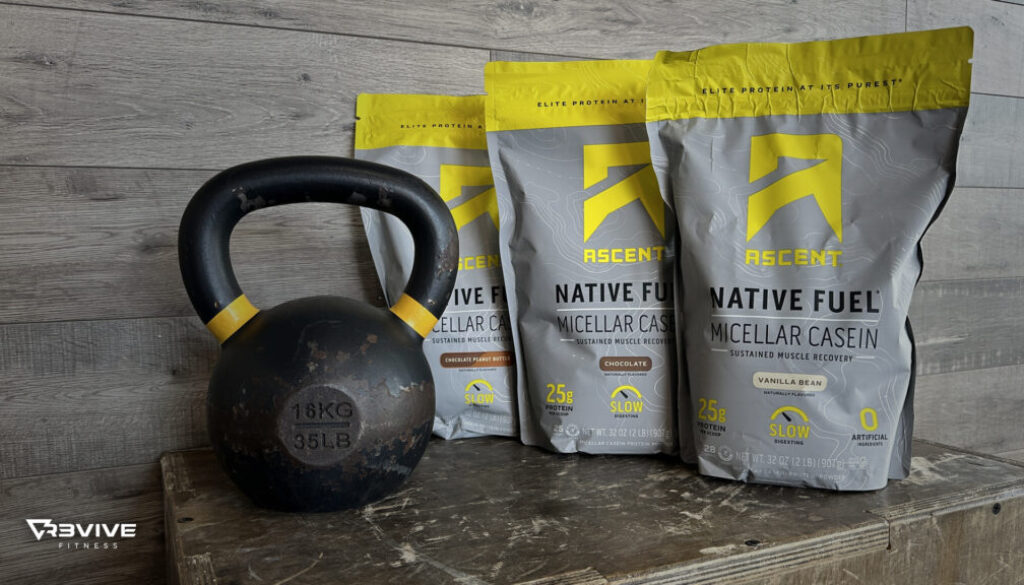The benefits of whey and casein protein
When it comes to supplementation, there are a lot of options available on the open market, which can make choosing what’s right for you overwhelming. At R3VIVE, we have worked to eliminate the complicated process of shopping for protein, by supplying our members with some of the best protein sources on the market.
We have partnered with Ascent Protein, serving our members both their whey and casein protein products. Let’s take a moment to review some differences between the two types.
What is Whey Protein?
Whey protein is a high-quality protein derived from milk during the cheese-making process. It contains a complete amino acid profile, making it an excellent source of essential amino acids crucial for muscle growth, repair, and overall body function. Whey protein is quickly and easily absorbed by the body, making it a popular supplement among athletes, fitness enthusiasts, and those seeking to increase their protein intake. Additionally, whey protein has been associated with various health benefits, including supporting immune function and promoting satiety. It comes in various forms, such as concentrate, isolate, and hydrolysate, each with different protein concentrations and processing methods to suit individual dietary preferences and goals.
Ascent’s whey protein is an isolate form of protein, which means the process for filtering the protein is more intense removing lactose and fat and ensuring purity for its protein source. It is also considered some of the cleanest protein on the market, without additional additives such as emulsifiers.
What is Casein Protein?
Casein protein is a high-quality protein found in milk, constituting about 80% of the total protein content. Unlike whey protein, casein is a slow-digesting protein, providing a sustained release of amino acids into the bloodstream over an extended period. This slow digestion makes casein an ideal protein source for promoting muscle protein synthesis during periods of fasting, such as overnight or between meals. It forms a gel-like substance in the stomach, leading to a gradual release of amino acids and providing a feeling of prolonged fullness. Casein is often used as a dietary supplement to support muscle maintenance and growth, particularly in situations where a steady and prolonged protein supply is beneficial, such as during periods of rest or sleep.
What are the differences between whey and casein protein?
Whey protein and micellar casein protein are both complete proteins, encompassing all nine essential amino acids crucial for the body. The digestion and absorption processes of casein differ significantly from whey protein, influencing their respective roles in workouts and muscle recovery. Some key differences are:
Whey Protein
- Fast-digesting, resulting in a rapid increase of amino acid levels in the bloodstream
- Fast muscle protein synthesis, making it ideal for during or right after your workout
- Versatile to mix with liquids for convenient consumption, such as a protein shake
Casein Protein
- Slow-digesting, providing a gradual release of amino acids over several hours
- Sustained muscle protein synthesis for a longer period, making it ideal for sleep and recovery
Why does it matter?
Enhancing your muscular strength is key to improving performance in any sport, reducing fatigue and minimizing negative impacts on the body. Protein supplementation can play a crucial role in achieving these goals, particularly when combined with resistance training, as studies indicate it may boost gains in both aerobic and anaerobic power. The caveat lies in the importance of consistency; as sustained commitment is shown to be the catalyst for noticeable results in terms of increased muscle strength and overall performance.
Train to live. Train with purpose.

